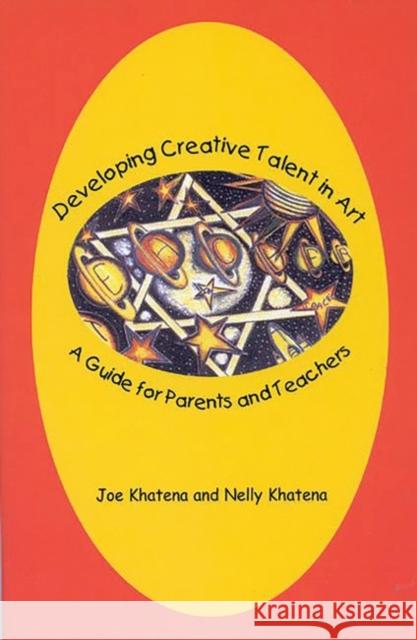Developing Creative Talent in Art: A Guide for Parents and Teachers » książka
Developing Creative Talent in Art: A Guide for Parents and Teachers
ISBN-13: 9781567504071 / Angielski / Twarda / 1999 / 206 str.
Developing Creative Talent in Art: A Guide for Parents and Teachers
ISBN-13: 9781567504071 / Angielski / Twarda / 1999 / 206 str.
(netto: 341,60 VAT: 5%)
Najniższa cena z 30 dni: 355,74
ok. 30 dni roboczych.
Darmowa dostawa!
Developing Creative Talent in Art is a guide for parents, teachers and others interested in developing creative art talent of young people. Visual art has its own language system by which the artist communicates to others thoughts, ideas and feelings about the world as they see them. First experienced as images and then codified in art language form, information about the world in this dual form is processed by creative imagination to produce original art works. Both the language of visual art and creative processing techniques are presented by example and instructional application so that students can compose art not only intuitively but also at will. The book is based on the assumptions that: (1) being able to recognize and know how to identify creative individuals with special talent in art, guidance can be given to maximize the achievement of their potential; (2) understanding creative imagination as process and skill will provide tools to talented individuals for their development in art; (3) mental images constitute the earliest informational source prior to their symbolization in one language form or another; (4) visual art has its own language, derived at first from mental imagery, and just as someone learns and uses the language of words, the artist learns and uses the language of art in productive expression; (5) individuals can be taught to use creative imagination to process all kinds of information and its art language-imagery correlates to produce original works; and (6) feedback in terms of appraisal of student art is essential to foster and guide developing art talent. We provide information about the nature of creativity and talent approaches to identify individuals possessing these potentials generally and art specifically, the nature of creative imagination and its significance and relevance in art imagery as the language of discovery, and the language of art design as order and composition in art, creative imagination as process and teachable skills, instruction in how they may be used to produce art works with relevant practical exercises, the nature of color and its role in art production, and approaches that can be used to evaluate student art.











